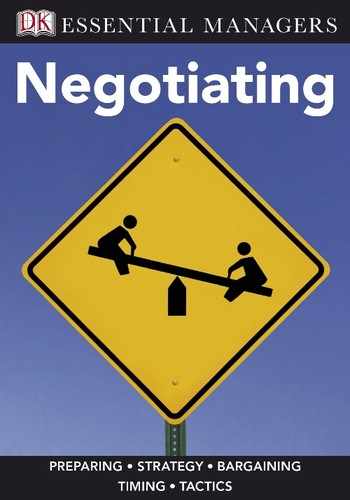Being a Mediator
As a manager, you will often have to negotiate directly with others within your organization, but will also sometimes be asked to get involved as a third party to try and help parties engaged in disputes to resolve their conflicts. You therefore need to understand the principles of effective mediation and how your role is different to that of other mediators.
Defining mediation
Mediation is a structured process in which an impartial third party facilitates the resolution of a conflict between two negotiating parties. For mediation to be successful, the person selected to mediate a dispute must be acceptable to both of the parties. They must be entirely happy that the mediator is unbiased and will assess the circumstances of the dispute objectively.
If you are asked to mediate a dispute, you need to be certain that you will be able to remain impartial and not let yourself get swept up in the emotional side of what is taking place. Your role will require you to look at the situation from the perspective of each of the disputing parties to find areas of common ground between them, and use this information to make recommendations that would be acceptable to both parties.
Principles of effective mediation
Keep the goal in mind
Always remember that the aim of mediation through integrative negotiation is not to achieve absolute justice, but to develop options and find the most workable and satisfactory option.
Use an integrative approach
Try to understand the interests of each of the disputing parties, and help them reach an integrative (win–win) resolution that they would both find acceptable.
Advocate Confidentiality
Make it clear to all parties that the mediation process is confidential. Disputing parties are only likely to share important information if they believe that the mediator is neutral and trustworthy.
Remain neutral
Ensure that you remain neutral and help to facilitate the mediation process, rather than actively trying to influence the outcomes of the conflict.
Give ownership
Let the disputing parties know that they must take responsibility for the conflict and for its resolution, and are expected to identify the issues and engage creatively in solving the conflict.
Encourage Self-determination
Ensure that the disputing parties recognize their differences and know that their participation in the mediation process is voluntary and they are free to leave at any time.

Remaining impartial
The manager’s role as a mediator is similar to that of other neutral third-party mediators. He or she is working to the same goal as other mediators: to help the disputing parties resolve their disputes. However, as the types of conflict a manager has to deal with often affect organizational goals and performance, he or she may sometimes find it difficult to remain neutral to its consequences. In order to protect the organization’s interests, the manager may sometimes have to exercise more control over how the conflict is mediated and also over how the dispute will be resolved. In addition, managers will often have a shared history and possibly a future relationship with the disputing parties. Given these challenges, a manager must do his or her utmost to mediate the dispute in an unbiased manner.
Understanding the process
The mediation process is a step-by-step, structured process. However, unlike the rigid legal process used for mediation, the process used by managers is flexible. It involves five main steps:
Initial contact Start by meeting with each party to identify the issues and provide general information about the mediation process and principles.
Assessment and preparation Next, you need to introduce your role as the mediator, and talk to each disputing party to obtain information about the nature of the dispute. You should also make an assessment of your ability to mediate this dispute, by deciding whether the disputing parties are ready for mediation. You also need to get the parties to commit to engaging in constructive mediation, by asking them to sign a contract. Finally, make a list of the issues in dispute for later discussion.
Joint opening session Once you are fully prepared, you then need to establish a psychologically safe environment in which the mediation can take place. Clarify the rules of engagement, such as mutual respect, taking notes and meeting privately with each disputing party. Educate the parties on the differences between each of their positions and interests and begin to work on the issues.
Joint sessions Facilitate a productive joint problem-solving situation by continuing to move the disputing parties from positions to interests. Prioritize and narrow down the issues, identify areas of agreement and areas of disagreement, and encourage the disputing parties to make realistic proposals. This may take one or a number of sessions.
Agreement Write down aspects of the agreement as the disputing parties begin to agree on more issues. Ensure that the final agreement is very precise, is owned by the disputants, and is forward-looking.
Mediating as a manager
| Fast track | Off track |
|---|---|
| Ensuring that the disputing parties reach an integrative agreement that is satisfactory to all | Failing to take the time to fully listen to and understand the interests of the disputing parties |
| Trying to resolve the conflict as quickly and efficiently as possible | Allowing the conflict to disrupt the organization’s day-to-day business |
| Ensuring that the mediation process is fair to both parties | Introducing your own biases |
| Allowing disputing parties to express their feelings | Disregarding the emotions of the disputing parties |
